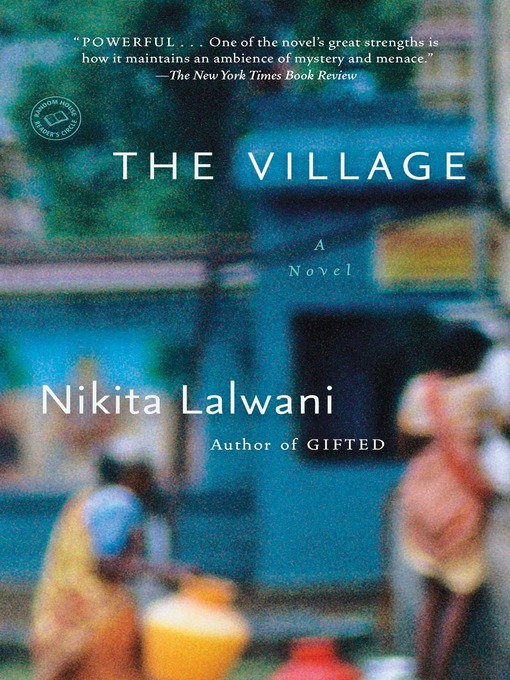- New eBook additions
- Available now
- Most popular
- Armchair Exploration
- Award Worthy Reads
- The Case of the Checked Out Mystery
- Lady Whistledown Recommends
- Out Of This World
- Reading is Timeless: Historical Fiction
- Retro Reads: Books from before the 21st century
- Swoon Worthy Rom Coms
- We are Everyday Miracles (Memoirs)
- See all
-
Description
-
Details
-
Reviews
After a long trip from London, twenty-seven-year-old BBC filmmaker Ray Bhullar arrives at the remote Indian village of Ashwer, which will be the subject of her newest documentary. From the outside, the town projects a cozy air of domesticity—small huts bordering earthen paths, men lounging and drinking tea, women guiding bright cloth through noisy sewing machines. Yet Ashwer is far from traditional. It is an experimental open prison, a village of convicted murderers and their families.
As Ray and her crew settle in, they seek to win the trust of Ashwer’s residents and administrators: Nandini, a women’s counselor and herself an inmate; Jyoti, a prisoner’s wife who is raising her children on the grounds; Sujay, the progressive founder and governor of the society. Ray aims to portray Ashwer as a model of tolerance, yet the longer she and her colleagues stay, the more their need for a dramatic story line intensifies. And as Ray’s moral judgment competes with her professional obligation, her assignment takes an uneasy and disturbing turn.
Incisive, moving, and superbly written, The Village deftly examines the limits of empathy, the slipperiness of reason, and the strength of our principles in the face of personal gain.
Praise for The Village
“Powerful . . . One of the novel’s great strengths is how it maintains an ambience of mystery and menace.”—The New York Times Book Review
“Extraordinary . . . Lalwani writes with wonderful clarity and intelligence.”—The Times (U.K.)
“The Village can creep up and grab you unawares.”—Toronto Star
“[Lalwani’s] prose is evocative and excellent.”—Publishers Weekly
“Thoughtful and beautifully written.”—The Guardian (U.K.)
“Gripping.”—Marie Claire (U.K.)
“Intelligent and disturbing . . . a sharply observed, highly personal book.”—Pittsburgh Post-Gazette
“A thoughtful novel that envelops us in the oppression and beauty of the rural prison . . . Each voice is distinct, believable and stubborn in its refusal to be easily known. . . . Touchingly evocative.”—Financial Times
“Thoughtfully and often beautifully written . . . a candid exploration of journalistic ethics.”—The Observer

Kindle Book
- Release date: July 9, 2013
OverDrive Read
- ISBN: 9780812984583
- Release date: July 9, 2013
EPUB ebook
- ISBN: 9780812984583
- File size: 2569 KB
- Release date: July 9, 2013

Loading
